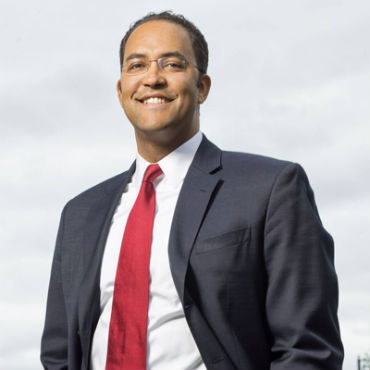Some improvement, but no A’s, on FITARA scorecard 2.0

In the second round of FITARA grades, many agencies improved but none managed to get top IT management marks.

Rep. Will Hurd (R-Texas)
The House Oversight and Government Reform Committee released its second Federal IT Acquisition Reform Act scorecard on May 18. And while many agencies fared better, none received stellar marks.
"We are not there yet, and we have a long way to go," said Rep. Will Hurd (R-Texas), the chairman of the IT subcommittee. Technology's potential to revolutionize government has yet to be realized, Hurd said, but the latest round of grades show that agencies are "moving the needle in the right direction."
Of the 24 CFO Act agencies governed by FITARA, seven scored higher, one lower and 16 had no grade change between the first and second scorecards, noted the Government Accountability Office's Dave Powner. As of the day before the scorecard announcement and hearing, the last two CFO Act agencies had finalized their FITARA implementation plans, Powner added. The GAO released a FITARA implementation report on the day of the hearing.
The House committee handed out a first round of FITARA grades, most of them Ds, in November 2015. Some agency CIOs disputed their failing grades, while others embraced them as an honest baseline on which to improve.
NASA, which was one of three agencies to receive an F grade on the first scorecard, was the only failing agency this time around.
"Admittedly, NASA's scores on the FITARA scorecard are unacceptable," said NASA CIO Renee Wynn in her written testimony. "We have work to do, and challenges to overcome."
Wynn pledged improvements, primarily based on the continued use of NASA's Business Services Assessment (BSA) vetting process. The BSA evaluation procedure was first introduced in 2015, and a BSA IT Implementation Plan was approved earlier this year.
Wynn took over the top IT spot at NASA in late September, replacing her predecessor Larry Sweet two months ahead of a planned succession schedule. At the hearing, she said ties between her office and top NASA leadership are closer than ever.
"I now report directly to the administrator and can talk to him whenever I want," Wynn said.
Overall, "NASA has a strong foundation on which to successfully implement FITARA," Wynn said. "We are on track to head towards a C."
The General Services Administration was the only agency to decline, slipping from a B to a C thanks to weaker data center consolidation progress. The Department of Energy leaped from an F to a C-.
The highest score, and only B grade, went to the Commerce Department. Commerce received A grades for its data center consolidation work and risk assessment transparency.
Commerce CIO Steve Cooper credited an aggressive embrace of FITARA's principles.
Commerce is one of only a few agencies to appoint a full-time FITARA staffer, he said -- the Education Department was the first -- and new policies have put him in charge of reviewing all projects worth $10 million or more. He has also pursued "CIO review" evaluations that look carefully at any public-facing IT projects, any new tech introductions and any projects that involved taking on "risk of a different nature," such as cloud computing.
GAO's Powner said that, government-wide, agency leaders need to coordinate better in order to realize FITARA's benefits.
He said that "not enough" CFO Act agency CIOs report directly to their agency's secretary or deputy secretary, and that he's seen a "mixed bag" of chief financial officer responses to FITARA implementation.
"Some CFOs are worried about losing power," Powner said, noting that without coordination between CFOs and CIOs, CIOs won't be able to get their heads around agency spending.
With the second hearing and scorecard, Rep. Gerry Connolly (D-Va.) said the committee is demonstrating its bipartisan pledge to monitor FITARA progress closely. "Unlike Clinger-Cohen, we were going to stick with this," he quipped.
Connolly also took aim at the Energy Department's national laboratories, which had gained a funding bill exemption from FITARA oversight.
"The carve-outs for the national labs was an outrageous thing to do," Connolly said. "If there's anybody that could have benefitted from FITARA, it's the national labs."
The labs' exemption was nixed in committee last month, and Connolly warned the Energy Department to leave it that way.
"We're not going to stand for it," Connolly said, promising "a broad bipartisan assault on the national labs" if Energy angles for any other exemptions. Connolly told Energy CIO Michael Johnson, "I hope you will go back and warn them, this time there will be a fight."
In general, however, Connolly and other lawmakers promised their support, if agencies keep working to improve.
"We want to see progress," said Rep. Mark Meadows (R-N.C.). "If you're willing to do a good job, I'm willing to be your advocate."


